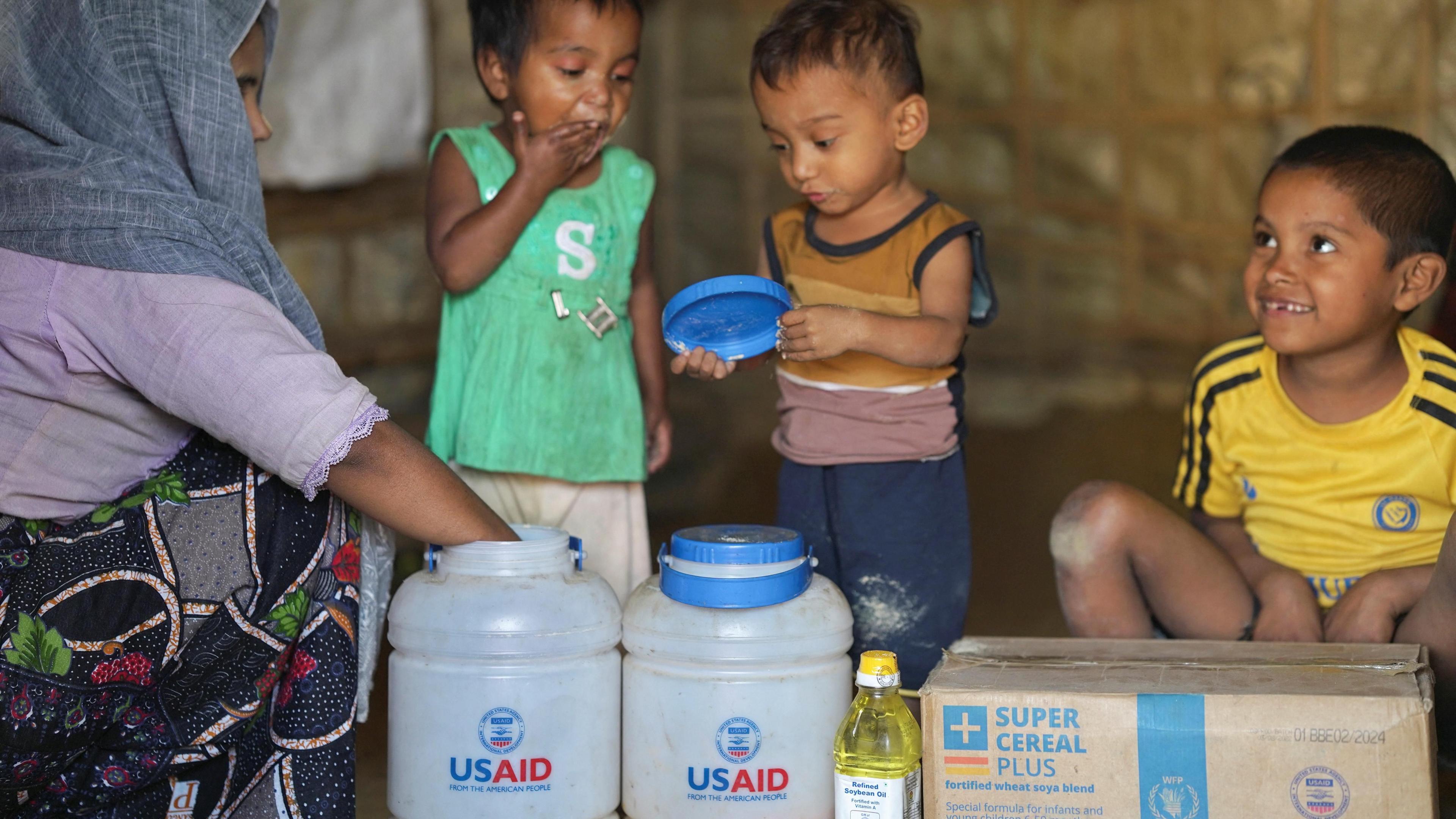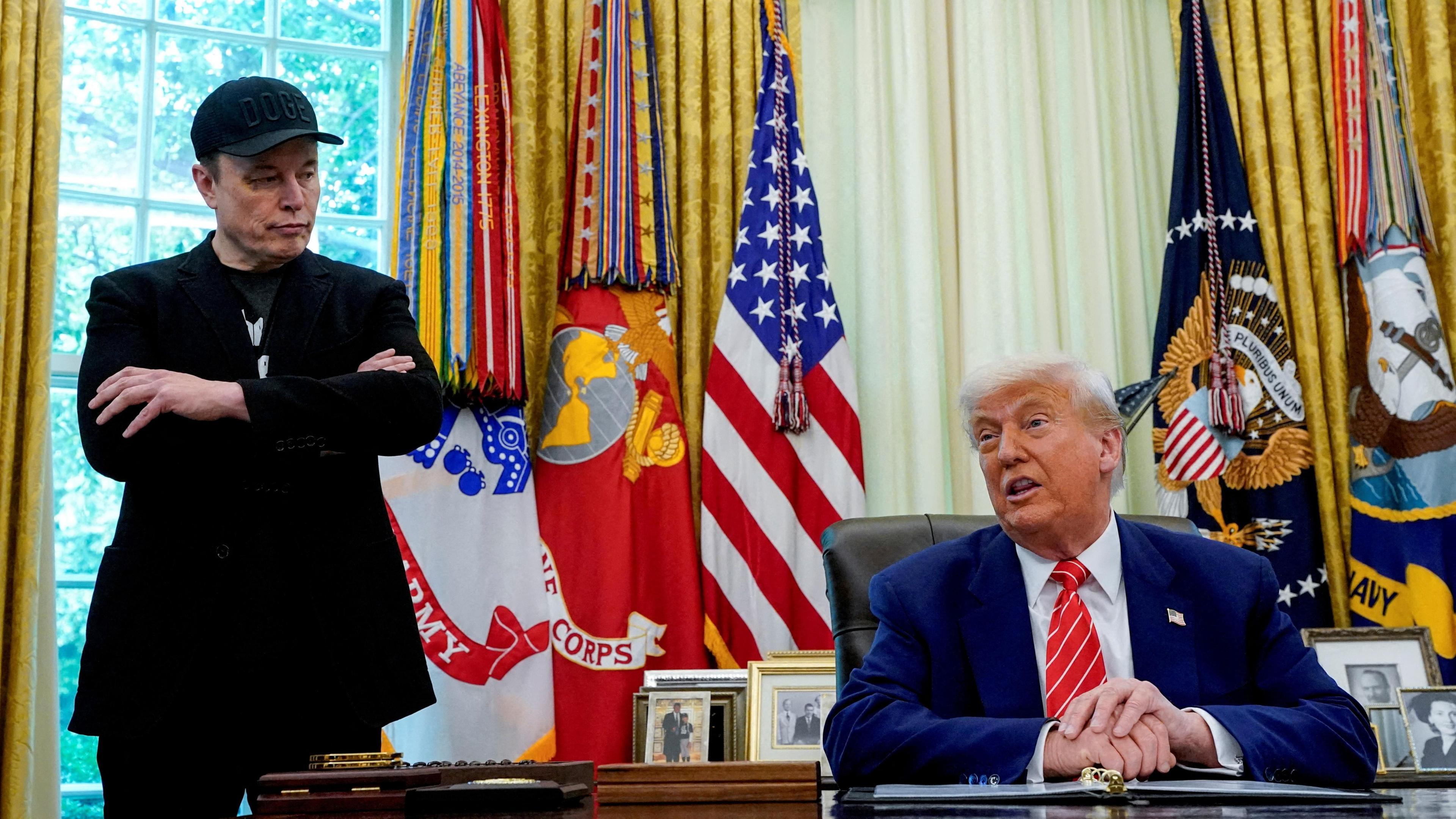Trump global aid cuts risk 14 million deaths in five years, report says

- Published
President Donald Trump's move to cut most of the US funding towards foreign humanitarian aid could cause more than 14 million additional deaths by 2030, according to research published in The Lancet medical journal.
A third of those at risk of premature deaths were children, researchers projected.
Low- and middle-income countries were facing a shock "comparable in scale to a global pandemic or a major armed conflict," said Davide Rasella, who co-authored the report.
US Secretary of State Marco Rubio said in March that over 80% of all programmes at the US Agency for International Development (USAID) had been cancelled. The Trump administration has taken aim at what it sees as wasteful spending.
The controversial cutbacks - which were condemned around the world by humanitarian organisations - were overseen by Elon Musk. The billionaire was then leading an initiative to shrink the federal workforce.
During his second term, Trump has repeatedly said he wants overseas spending to be closely aligned with his "America First" approach.
The USAID funding cuts "risk abruptly halting - and even reversing - two decades of progress in health among vulnerable populations," said the statement from Rasella, a researcher at the Barcelona Institute for Global Health.
In their report, external, Rasella and his fellow researchers estimated that USAID funding had prevented more than 90 million deaths in developing countries between 2001 and 2021.
They modelled the potential impact on death rates with an assumption that funding would be cut by 83% – the figure provided by Rubio in March.
The researchers suggested that the cuts could lead to a "staggering" number of more than 14 million avoidable deaths by 2030.
That would include the deaths of more than 4.5 million children under the age of five, they added.

The Lancet report was published as dozens of world leaders meet in the Spanish city of Seville this week for a United Nations-led aid conference, the biggest of its kind in a decade. The US is not expected to attend.
The US, by far the world's largest humanitarian aid provider, has operated in more than 60 countries, largely through contractors. According to government data, it spent $68bn (£55bn) on international aid in 2023.
USAID was seen as integral to the global aid system. After Trump's cuts were announced, other countries followed suit with their own reductions - including the UK, France and Germany.
The moves have been widely condemned by humanitarian organisations. Last month, the United Nations said it was dealing with "the deepest funding cuts ever to hit the international humanitarian sector".
According to Rubio's statements in March, there were still approximately 1,000 remaining US programmes that would be administered "more effectively" under the US State Department and in consultation with Congress.
Still, the situation on the ground has not been improving, according to UN workers.
Last month, a UN official told the BBC that hundreds of thousands of people were "slowly starving" in Kenyan refugee camps after US funding cuts reduced food rations to their lowest ever levels.
At a hospital in Kakuma, in northwestern Kenya, the BBC witnessed a baby who could barely move and was showing signs of malnutrition, including having parts of her skin wrinkled and peeling.